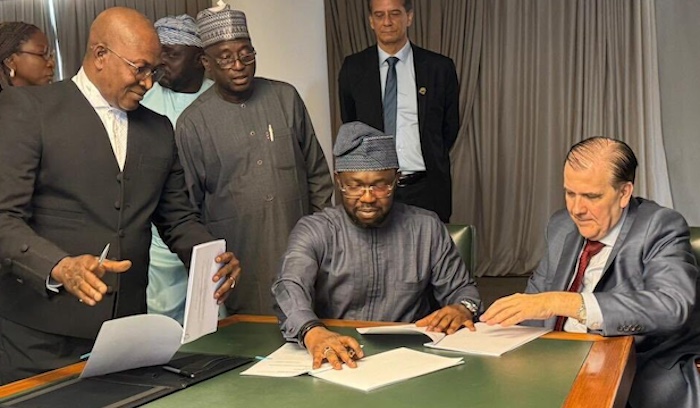The Federal Government of Nigeria, through the Ministry of Agriculture and Food Security (FMAFS), has signed a Memorandum of Understanding (MoU) with a Brazilian higher education institution, Fundação Getulio Vargas (FGV).
The agreement, formalised at FGV’s headquarters in Rio de Janeiro during the G20 Leaders’ Summit, aims to advance agribusiness in all 774 local government areas (LGAs) of Nigeria.
The MoU focuses on fostering private sector development in critical areas such as fertiliser production, hybrid seed technology, and agricultural finance.
Representing Nigeria, Mr. Temitope Fashedemi, the Permanent Secretary of FMAFS, emphasised that the partnership would enable Brazil to engage with Nigeria’s rapidly growing agricultural sector, unlocking the potential for private sector investments in food security.
- Advertisement -
This agreement is tied to the Green Imperative Project (GIP), a $1.2 billion initiative launched in 2018 to modernise Nigeria’s agriculture.
The project, supported by Deutsche Bank, leverages Brazil’s expertise in tropical agriculture to deliver innovative technologies and capacity-building programs over ten years. It aims to empower agribusinesses across Nigeria, providing technical and financial support to at least one agribusiness in each of Nigeria’s LGAs over the next five years.
The GIP is projected to attract $4.3 billion in private-sector investments, boosting fertilizer production, hybrid seed technology, and agricultural finance.
Professor Carlos Ivan Simonsen Leal, President of FGV, underscored Brazil’s commitment to transferring its knowledge and expertise to help Nigeria achieve its food security and economic growth goals.
This partnership unlocks numerous investment opportunities in Nigeria’s agricultural sector. The Green Imperative Project’s $1.2 billion initiative and expected $4.3 billion in private-sector investments create attractive opportunities. Investors can tap into fertilizer production, hybrid seed technology, and agricultural finance, while growing international interest in Nigeria’s agricultural potential makes it a promising market.










